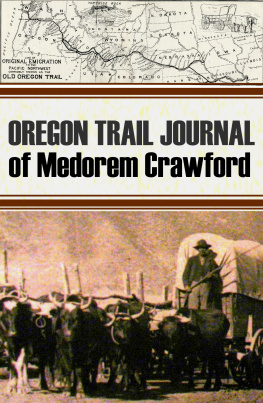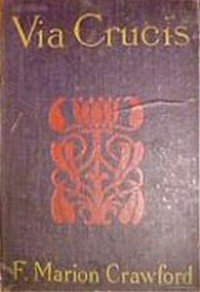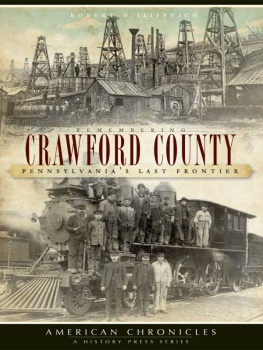
OREGON TRAIL JOURNAL OF
MEDOREM CRAWFORD
An account of his trip across the plains
With the Oregon Pioneers of 1842
1897
COPYRIGHT 2015 BIG BYTE BOOKS
Discover more lost history from BIG BYTE BOOKS
BIOGRAPHICAL NOTES
When we consider today what the journey was like for the pioneers who migrated west in the mid-19 th century, we wonder that anyone had the will and perseverance to make it. In fact, about 400,000 Americans crossed the perilous expanse of the Oregon Trail. This journal is the only record of one of the earliest large groups who made the trip.
When this company of pioneers set out, the 2,200-mile Oregon Trail was only recently being navigated by wagon trains. Up until 1840, it was only passable on foot or horseback. Medorem Crawford was typical of the travelersyoung, intrepid, and with more grit than good sensebut he became one of Oregons most important early settlers.
Medorem Crawford was born on June 24, 1819 in Orange County, New York to Samuel Gillespie Crawford and Elizabeth Davis. He was the eldest of six children and was 23 when he arrived in Oregon Territory in 1842.
By the 1850 federal census, he was married to Adeline Brown, with whom he had seven children. They were living in Oregon City, south of modern Portland, Oregon, and Medorem worked as a teamster. He at that time owned real estate worth $6,000 (about $180,000 in 2015 dollars). He was also serving in the territorial government.
He was a member of the Legislature of the Provisional Government of Oregon from 1847 to 1849. In 1860 he was elected to the State Legislature. He was held in high estimation by both U. S. Senators from Oregon, Baker* and Nesmith, as he was called to Washington to receive instructions for taking charge of escorting emigrants across the plains.
*Senator Edward Dickinson Baker (1811-1861) was such a close friend of Abraham Lincoln that Lincoln named his second son Edward Baker Lincoln (1846-1850). Though born in England, Edward Baker was a committed American citizen and a hero of the Mexican-American War. He became a Senator from Oregon in 1860 and worked with tireless devotion to keep the West Coast states in the Union. When war came, Baker kept his senate seat but formed a California regiment and led it in battle. On October 21, 1861, Edward Dickinson Baker became the only sitting senator to be killed in battle in the Civil War.
He led the expeditions of 1861, 62 and 63 during the American Civil War. He was commissioned an officer in the U.S. Volunteers Quartermaster's Dept. Infantry Regiment on April 28, 1862 and mustered out on April 16 1864.
He was for all practical purposes in control of the first and, with rank of captain in the volunteer army, had command of the two succeeding. In 1864 Crawford was appointed collector of internal revenue for Oregon. His duties in this involved subjecting of the people to an unaccustomed form of taxation and the setting in order of a new system for raising revenue. He administered the duties of this office for five years. From 1871 to 1875 he was appraiser of customs at Portland.
The Crawfords moved fifty-five miles southwest to McMinnville and for a while worked a farm. They continued to prosper in the new Territory, and by 1870 they were living in Dayton, about 34 miles southwest of modern Portland, again farming, and with a personal estate reported at $8,252 ($150,000 in 2015 dollars) and real estate worth $17,000 (about $300,000 in 2015 dollars). Clearly the risk of migration was paying off for the Crawfords.
Adeline Crawford died May 20, 1879, and Medorem remarried the next year to Mrs. Eunice Burrows. In 1862, his son, Medorem Jr., had received an appointment to West Point, where he graduated in 1867. He was eventually promoted to Brigadier General and is buried at Arlington National Cemetery.
Medorem Crawford, Sr. died at his home near Dayton on December 26, 1891, at the age of 72. The Morning Oregonian , of Dec. 27, 1891, in commenting on his life says, he was known to every person in Oregon during many years and remembered latterly by all who retained recollections of early days in Oregon. Medorem Crawford was a man to fix the impress of his individuality and character upon any community. As a pioneer he was among the most intelligent, far-seeing, and energetic, and as a State-builder, he bore a very important part.
1897 EDITORIAL NOTES
GENERAL:
The printing and distribution of the primary sources of the history of the Pacific Northwest is calculated to promote the cause of the history in Oregon and throughout our country in several distinct and important directions. ,
Pioneers and their descendants will through this means be brought to an adequate appreciation of much valuable material not yet utilized. This will be preserved and rendered available to future generations of students.
The achievement of an intrepid, resolute, and capable peoplethe Oregon pioneerswill thus come to be truly and duly recognized.
A remarkable period of our countrys expansion, one in which the national spirit was at its best, will be made instructive.
The youth of the Pacific Northwest must now draw his first historical inspiration from the exploits, struggles, and state building of men on the far away Atlantic seaboard, yet his own home section of the common country was the scene of deeds as heroic and effective, animated by motives even more youthful. The whole course of development from discovery and exploration to the establishment of a self-centered republic was accomplished here as well as there and independently. The scale was in miniature yet the results were substantial and far-reaching as they involved the destiny of the whole Coast and made us a truly continental nation facing both oceans.
These sources made accessible to the schools of the states of the Pacific Northwest will constitute a wealth of resources for historical parallels between the development of the east and the far west. The possibilities of historical instruction in American history in these schools will thus be revolutionized.
SPECIAL:
This edition of this journal is not in popular form; it is primarily intended for the historical student. The original copy is followed with verbal and literal exactness. The editor is under obligations to Mr. J. M. Crawford of Dayton, Yamhill county, Oregon, and Mrs. E. Stevens of Oregon City, Oregon, for the use of the original copy and for permission to contribute it to the searchers for original and indubitable historical evidence. The genuine historical student will have the tenderest appreciation of the adverse circumstances under which this record was made and be profoundly grateful that it was allowed to pass out of the family circle in this form for his use.
JOURNAL
March 17, 1842, Thursday-Left Havana 10 oclock A. M. Left Salubria 4 past 12 oclock on hoard Steam Boat Chemung for Geneva, landed near 5 oclock P. M put up at the Washington Temperance house. Left for Rochester at 1/2 past 11, E. arrived at J past 4 in M., distance 50 miles, put up at the Eagle very much fatigued having had no rest last night. Left for Buffalo J past M., arrd. y past 9 E., traviled by Rail road & Stage.
Saturday, March 19, find ourselves very sore & much fatigued. Lake full of ice no chance to get away today. Steam Boat Gen. Scot leaves a port about 12 miles down the Lake but we think it not advisable to go to it without a certainty of getting a passage.
The weather has been very fine since we started, roads very bad from Batavia to this place, distance 39 miles.
Sunday March 20, no prospect of getting away from this pi uncertain with regard to the best rout. Sunday forenoon, attended church, in the evening heard a lecture from Doct. White on the Oregon subject.
Next page










![Chris Crawford [Chris Crawford] - Chris Crawford on Game Design](/uploads/posts/book/119438/thumbs/chris-crawford-chris-crawford-chris-crawford-on.jpg)
